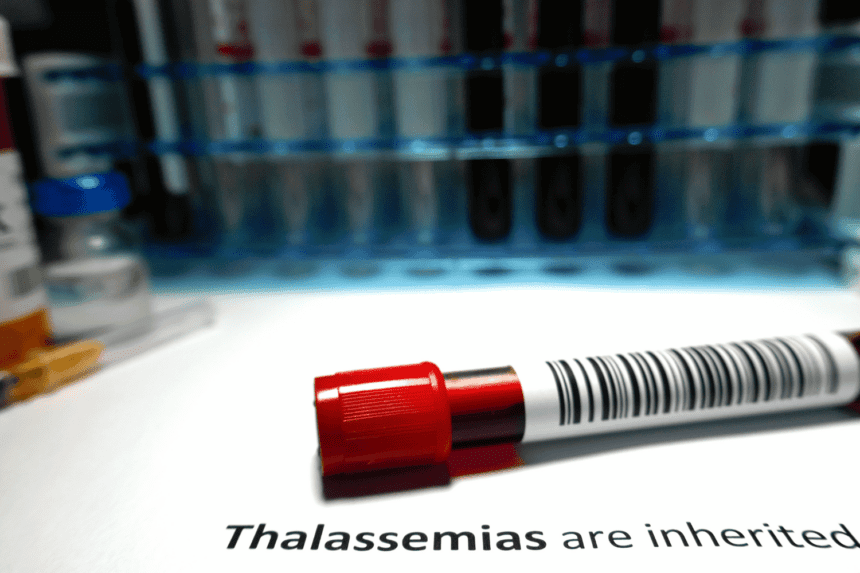Define Thalassemia
Thalassemia disease is a hereditary condition that impairs the synthesis of hemoglobin, a necessary protein in red blood cells, resulting in anemia. It is caused by hemoglobin mutations, which result in low or aberrant protein synthesis. Mediterranean anemia Thalassemia and Cooley anemia are other terms for Thalassemia.
Types of Thalassemia
There are two types of Thalassemia, Alpha and Beta, which are mentioned below:
1. Alpha thalassemia disease: Alpha thalassemia is a disorder in which one or more of the four alpha-globin genes in the hemoglobin molecule are absent or damaged. There are four types: silent carrier, which has one missing gene; moderate carrier; hemoglobin H disorder, which has three missing genes; and alpha thalassemia major, which has all four genes missing, resulting in severe anemia and frequently premature death in the newborn.
2. Beta thalassemia disease: Beta thalassemia or b thalassemia is a genetic disorder acquired from one or both parents. It can induce moderate or severe anemia, which is caused by a lack of red blood cells or hemoglobin, according to the number of genes involved.
Symptoms of Thalassemia
The common symptoms are:
- Fatigue and weakness.
- Pale or yellow skin.
- Deformities in facial bones.
- Jaundice.
- In children, slow growth.
- Delayed puberty.
- Dark urine.
These symptoms can range from mild to severe based on the types of Thalassemia patients suffer from.
Health Issues Associated with Thalassemia
1. An enlarged spleen
Your spleen removes damaged blood cells and fights infections. Your spleen may have to function harder than normal when you have thalassemia, which might lead to its enlargement. Your spleen could need to be removed if it becomes too big.
2. Infections
Blood infections are more common in people with thalassemia, particularly if they have many blood transfusions. Some infections might worsen after your spleen is removed.
3. Bone problems
Thalassemia can cause bone abnormalities in the face and skull. Patients with thalassemia may also suffer from severe osteoporosis or weak bones.
4. Excessive iron in your blood
This can harm the hormonal system, which includes the thyroid and adrenal glands, as well as the liver and heart.
Thalassemia Diagnosis
1. Transfusions of blood: Regular blood transfusions and folate tablets serve to treat moderate to severe cases of thalassemia. Folate (also known as folic acid) aids the body’s development of healthy blood cells.
2. Chelation therapy: If you have blood transfusions often, an excess of iron may build up in your blood. Not everyone may experience this. But, if this happens, chelation therapy will be necessary to get rid of the extra iron in your body. Iron supplements should be avoided if you get blood transfusions.
3. Bone marrow transplant: By substituting healthy donor cells for damaged ones, bone marrow or stem cell transplants can be helpful in the most extreme circumstances. Typically, a donor is a sibling or other member of the family.
Changes in Thalassemia Patients’ Lifestyle
- Follow your treatment plan as prescribed. Get blood transfusions as often as prescribed by your doctor.
- As prescribed, take your folic acid supplements and/or iron chelation medicine
- Seek regular medical treatment. Make sure you have frequent checkups and follow your doctor’s instructions for general health tests like blood tests or thalassemia tests.
- Make sure you follow your doctor’s instructions and get the hepatitis B, meningitis, pneumonia, and influenza vaccinations.
- Keep a nutritious diet and remain hydrated.
- Maintain a clean environment regarding you.
- Wash your hands regularly and stay away from crowds throughout the flu and cold season to lower your risk of infection.
Conclusion
Thalassemia is a genetic condition that affects hemoglobin synthesis, resulting in anemia in Alpha and Beta types. Symptoms might range from tiredness to bone problems. Blood transfusions, chelation treatment, and bone marrow transplants are used to manage this condition. Patients must stick to a treatment plan, consume a nutritious diet, and take preventative actions to boost their quality of life and manage their condition.


Leave a Reply